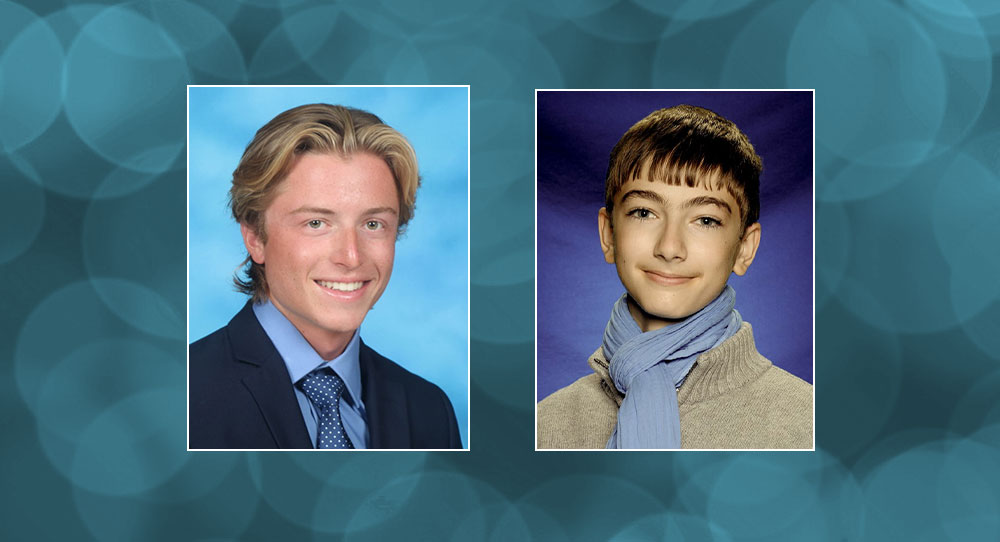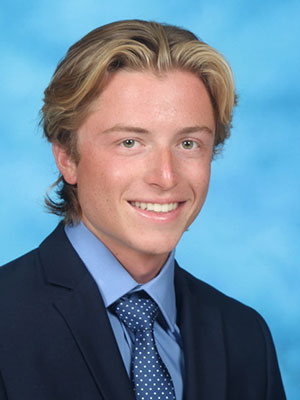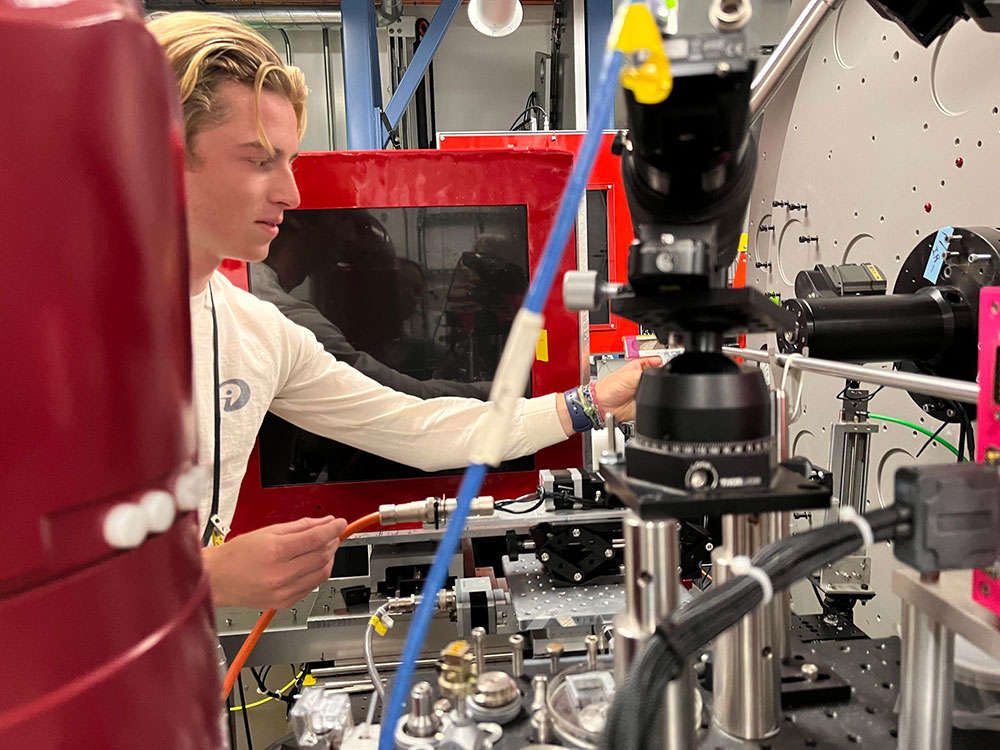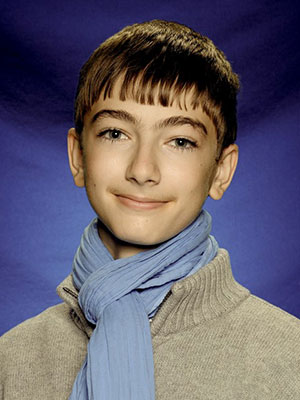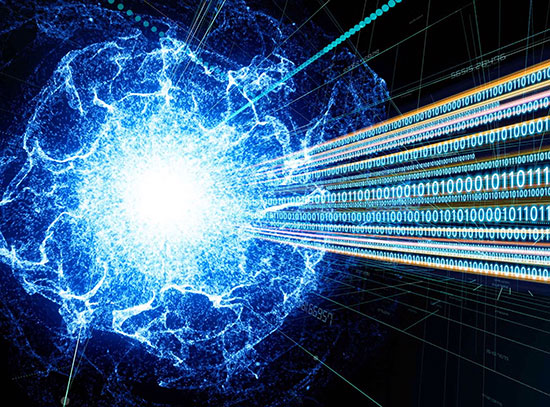Brookhaven HSRP and SPARK Program Alumni Selected in 2023 Regeneron Science Talent Search
Jack Shultz and Marc Nichitiu recognized in prestigious national high school science competition
February 17, 2023
Last month, Society for Science (the Society) announced the 300 scholars in the Regeneron Science Talent Search 2023. The scholars were each awarded $2,000 and also awarded $2,000 for their school. Scholars were chosen based on their research, leadership skills, community involvement, commitment to academics, creativity in asking scientific questions, and promise as STEM leaders, demonstrated through the submission of their original, independent research projects, essays and recommendations (See the full list of this year’s scholars).
Two of this year’s scholars were not only students from high schools on Long Island, but also young researchers who participated in two of the intensive educational programs offered at the U.S. Department of Energy’s (DOE) Brookhaven National Laboratory. Having the hands-on experience of working in a busy laboratory environment, seeing their research being carried out, and collaborating with experts in their fields of interest was a big asset in applying to a competition of this caliber.
“These programs provide students with an authentic research experience,” said Aleida Perez, Interim Manager of University Relations and Workforce Development for Teachers and Scientists (WDTS) and DOE Programs at Brookhaven Lab. “They are able to develop their scientific skills and build a collaborative network for their future educational, and perhaps professional, paths.”
Jack Shultz, a student at Westhampton Beach high school, was part of the Student Partnerships for Advanced Research and Knowledge (SPARK) Program at Brookhaven Lab last year. In this program, high school students and their science educators become visiting researchers with access to Brookhaven National Laboratory’s scientific facilities. Shultz has a core interest in biology and chemistry, which has led to several research projects and more specific areas of interest.
“Living on Long Island, it’s easy to take for granted what a unique and incredible environment we have,” said Shultz. “In a short amount of time, you can actually see climate change effects firsthand in things like marine ecosystems or the change in local weather patterns.”
Shultz has been researching kelp ecosystems on Long Island using the SRX and XPD beamlines at the Lab’s National Synchrotron Light Source II—a U.S. Department of Energy (DOE) Office of Science user facility—under the mentorship of Juergen Thieme, science coordinator for the imaging & microscopy program at NSLS-II and Eric Dooryhee, program manager for the Hard X-ray Scattering and Spectroscopy (HXSS) program at NSLS-II.
“The scientists at the beamlines were so helpful and inclusive,” recalled Schultz. “Their willingness and enthusiasm really pushed the boundaries of my work. Eric and Juergen were so encouraging and informative. There are people here with two doctorates, but they treat high school students like peers. It’s amazing that we have a resource like this locally, and many people may have research ideas that could benefit from it but have no idea it exists or that there are pathways to access it.”
His experience applying and being selected as a Regeneron scholar and being able to experience what it’s like to do research in a national laboratory setting as part of a team of professional scientists has only reaffirmed Shultz’s enthusiasm for science. He plans to continue his current research and pursue a degree in molecular biology.
Marc Nichitiu is a high school senior at the Stony Brook School that participated in the lab’s 2022 High School Research Program (HSRP). This competitive six-week program allows high school juniors and seniors to collaborate on a research project with Brookhaven Laboratory staff. Nichitiu was mentored by Igor Zaliznyak, a scientist specializing in Neutron Scattering in Brookhaven Lab’s Condensed Matter Physics and Materials Science Department. Zaliznyak was not only an encouraging mentor, but his advice was also one of the reasons Nichitiu entered the Regeneron competition.
“At first, I thought that I didn’t really have the time to apply for the scholarship and I simply wanted to focus on my research,” recalled Nichitiu, “but Dr. Zaliznyak really liked the research I was doing and encouraged me to write it up. It’s good practice, in general, to be able to describe what you've been doing and explain it to others. Indeed, just the experience of applying was helpful.”
Nichitiu collaborated with Zaliznyak to characterize the scattering signature of superfluid helium using thermal neutrons. From making balloons float to creating the computer chips in your smartphone, helium is in high demand on earth, but it is not an infinite resource. The need for this element continues to grow, but it is non-renewable noble gas, and the global supply is limited. Nichitiu started his research thinking of how describing neutron scattering signatures could help future space probes seek resources like helium from places beyond the constraints of our own planet. Nichitiu was also fascinated with helium’s behavior at very low temperatures.
“If you take helium gas and you cool it down below 2.2 Kelvin, you get a special kind of liquid called a super fluid, which has zero viscosity” explained Nichitiu. “Since it has zero friction, it can just creep up the walls or through the tiniest crevices, which makes it really good for leak detection and for powering thermo-mechanical pumps in space. The discovery of the frictionless behavior of superfluid helium marked a cornerstone in modern physics with implications for the study of superconductivity and the universe’s phase transitions following the Big Bang.”
Both scholars encourage students with a passion for STEM to ignore their doubts and apply. Applications for the 2024 search will be accepted from June of this year into November, leaving plenty of time to start planning out a research project to submit.
“There's no harm in applying,” said Nichitiu. “If you're doing any sort of scientific research that you know you believe has some merit to the scientific community, you should definitely try. Even if it gets rejected, even if it's not on par with the journals you would want to submit it to, it's really important to get those basic scientific skills.”
Brookhaven National Laboratory is supported by the Office of Science of the U.S. Department of Energy. The Office of Science is the single largest supporter of basic research in the physical sciences in the United States and is working to address some of the most pressing challenges of our time. For more information, please visit science.energy.gov.
Follow @BrookhavenLab on Twitter or find us on Facebook.
2023-21057 | INT/EXT | Newsroom




